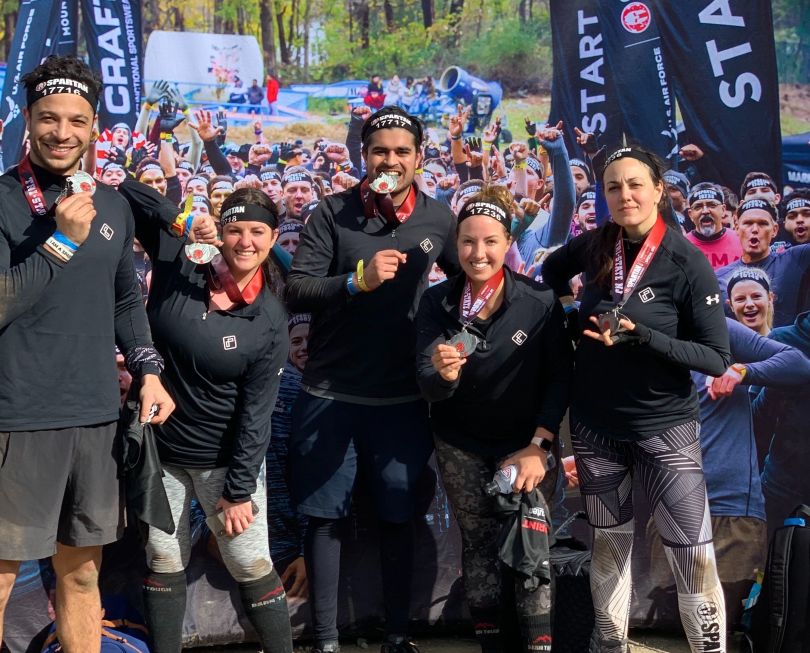As the VP of people operations at a real estate company with units across the country, Sara Marzitelli of Common is well-versed in cultivating a culture that fans out far beyond its Manhattan-based headquarters.
So when the spread of COVID-19 prompted the co-living company to adopt a work-from-home model, there was already a strong foundation off which to build, according to the people leader.

“Building culture remotely has always been at the forefront of our employee experience, because so many members of our team work remotely,” Marzitelli said. “We have software engineers and member services specialists that are currently working from home, but we also have a team of property services technicians and leasing specialists working directly from the buildings we manage.”
Marzitelli, who’s been with the company for nearly three years, said that beefing up C-suite communications, being tactical about remote onboarding and carving out time for camaraderie-building have been a few ways they’ve maintained culture across the org.
There’s no perfect way to do remote work, so you need to get personal.”
While certain practices might succeed, she stressed the importance of personalization.
“Don’t use a one-size-fits-all approach. Figure out what works best for each team. Preserving culture on the software engineering team is completely different than it is with property managers,” Marzitelli said.
From championing “candid conversations” to implementing programming that solidifies colleague bonds, here’s how Marzitelli continues to cultivate and preserve culture amidst a changing landscape.
What’s your philosophy for cultivating company culture, and how have you tweaked that to suit the remote world?
The notion that transparent, honest communication helps build happy employer relationships is core to who we are. In fact, “default to transparency” is one of our company values.
Since the outbreak of COVID-19, we’ve had to double down on this. Defaulting to transparency has to start at the top. Our founder and CEO, Brad Hargreaves, does a great job of being transparent with the entire organization. This includes getting candid about board conversations during our all-hands meetings; sharing raw data about company performance with all teammates; holding regular ask-me-anything (AMA) sessions, where employees can ask questions that he’ll answer on the spot; and more.
From a leasing specialist in Florida to a porter in Seattle, our employees know what the highest priority is for the entire organization.
How Common Maintains Its Culture While Remote:
- Training & development programs centered around topics like time management, warding off burnout and having effective one-on-ones
- Virtual wellness and mental health resources
- Bi-weekly “Donut” sessions for teammates to chat with one another
- AMA-style check-ins with C-suite teammates, including the CFO, president & CTO
Are there any pre-remote culture-building techniques that you’ve pivoted that have worked particularly well?
Building culture remotely has always been at the forefront of our employee experience, because so many members of our team work remotely. We have software engineers and member services specialists that are currently working from home, but we also have a team of property services technicians and leasing specialists working directly from the buildings we manage.
For onboarding remotely, we’ve given new employees more time to digest all the information they’ve received in order to reflect and ask questions. Eight hours of screen-time per day the first week can be overwhelming and exhausting.
Additionally, we make sure that at the office or a remote workplace, all of our employees have access to the same benefits and perks, even if they cannot be with other employees to enjoy them, including paid group lunches once a week, virtual team outings, career training and more.
Everyone here has a stake in the company and is given stock options when they decide to work here. This means that we’re all here to help the company flourish. Building a culture that treats everyone like their voice matters — no matter where they live or what level they are — is imperative to our success.
Don’t use a one-size-fits-all approach. Figure out what works best for each team.”

What challenges arise when cultivating and maintaining culture remotely? How do you overcome those?
Maintaining strong communication and cross-collaboration. It’s taken some trial and error, but I feel like we’ve gotten to the bottom of it.
It’s easy for things to fall through the cracks remotely. Even when you don’t have the right answer, over-communicating is the best option. We’re constantly talking to employees about this way of managing.
It’s also easy to work in a silo remotely. By having personal conversations with all of our employees about how they’re doing and how they’re feeling, collaboration has been easier. When we begin to return to the office, we’ll continue this check-in policy, because it’s been helpful with teams, whether they’re in New York City or Atlanta.
What is your biggest learning from hiring and scaling Common’s culture remotely during COVID-19?
There’s no perfect way to do remote work, so you need to get personal. Our employees are different ages, come from diverse backgrounds and have so many different types of living situations and conditions. Whether they have two children under five, three loud roommates, or live alone in a tiny micro-studio, there isn’t one sweeping policy that can compliment everyone’s work-from-home needs. What works for me might not work for you, and that’s totally okay.
Onward to Atlanta
What advice do you have for people leaders seeking to cultivate culture remotely?
Don’t use a one-size-fits-all approach. Figure out what works best for each team. Preserving culture on the software engineering team is completely different than it is with property managers. I’ve learned to be flexible and change our approach for how people are feeling in the moment.
Personally, finding a network of peers has been valuable for my success. Consulting with people managers at other companies has provided an important community that helps one another out. No matter what company you’re at, we’re all in this together.






